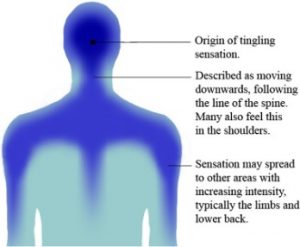While you’re reading this post, may I ask you to take a moment to pay attention to your background sound? Do you think it is noisy? Or do you think it is comfortable? Does it irritate and distract you? Or does it help you to focus more?
 https://d2r55xnwy6nx47.cloudfront.net/uploads/2021/02/Brain-Noise_2560_Lede.jpg
https://d2r55xnwy6nx47.cloudfront.net/uploads/2021/02/Brain-Noise_2560_Lede.jpg
Tick Tock…
Now let’s be back and think about it: How does background noise affect our concentration?
First of all, humans interpret sound and process the information through cortex, the outer layer of the most anterior of the brain. When our concentration is disrupted, cortisol – the primary stress hormone – is induced and results increasing of our stress level. Excess cortisol impairs functions in the most front of cortex. Thus, when cortex is affected by noise from the outside environment, our capacity to think clearly and to retain information is compromised.
Notably, when people become sensitive to the triggering sounds such as eating and breathing, they are emotionally affected by these triggering sounds. The phenomenon is called: Misophonia. A British-based research of 20 misophonic people and 22 normal people shows that only misophonic people rated the triggering sounds as highly disturbing while both groups rated other neutral sounds such as baby crying and people screaming as unpleasant sounds. It also led to another finding of the researcher that misophonic people showed much greater physiological signs of stress to the triggering sounds including increased sweat and heart rate.
 https://i.guim.co.uk/img/media/e16e33bdce44e28c845484cf9b93efafbdcac570/0_171_5121_3073/master/5121.jpg?width=620&quality=45&auto=format&fit=max&dpr=2&s=1b96aff2315ed8ee9176c6908c50f57b
https://i.guim.co.uk/img/media/e16e33bdce44e28c845484cf9b93efafbdcac570/0_171_5121_3073/master/5121.jpg?width=620&quality=45&auto=format&fit=max&dpr=2&s=1b96aff2315ed8ee9176c6908c50f57b
ASMR Ambience
However, if you’re browsing YouTube often, you’ll notice in recent years, “ASMR” and “ambience” are trending. Such sounds including tapping, writing, raining and fireplace imitation, help many people to relax and fall asleep as well as more concentrated on working and studying.
Why is that?
Let’s start with ASMR’s full term: Autonomous Sensory Meridian Response, from which you could possibly tell based on previous section. It is in fact a response to specific triggering sounds experienced by some people called Brain Tingle: A flow-like mental state, which is shown below in an ASMR map.
 https://www.ncbi.nlm.nih.gov/pmc/articles/PMC4380153/figure/fig-1/
https://www.ncbi.nlm.nih.gov/pmc/articles/PMC4380153/figure/fig-1/
An experiment was carried out to study to see physiological changes in participants while they were watching two different ASMR videos and one non-ASMR video. Half of the participants were identified as having ASMR experience and the other half did not. The study found that those “who experience ASMR showed significantly greater reductions in their heart rates … on an average decrease of 3.14 beats/min compared to those who do not.” More importantly, there appears “significant increases in positive emotions including relaxation and feelings of social connection”. Although the change only appeared in participants with ASMR experiences, ASMR is proved to be beneficial for both mental and physical health.
Wrap Up and Step Further
Noise has various impact on human’s brain activity. Just like a coin has two sides, the impact could be positive or negative. Even if its positive side cannot be a replacement for medication, its benefits for mental and physical health are therapeutic.
~ By Evelyn Zhong

One response to “Impact of Background Sound to Our Brain Activities”